Do the wrong thing during a power outage and you could put yourself in danger.
14 Things You Should Never Do During a Power Outage

Delay Phoning It In
Power companies need to know when your service has been interrupted, and the sooner the better. Even if you think the outage is widespread and it’s probably been phoned it, it’s best to assume otherwise and make the call yourself.
It’s possible the outage is localized, and if you don’t phone it in, no one will. Fallen trees landing on power lines, broken poles during a windstorm, and other weather-related equipment failures can lead to small, localized outages. Always best to let the power company know ASAP. Here are some great electricity saving tips.
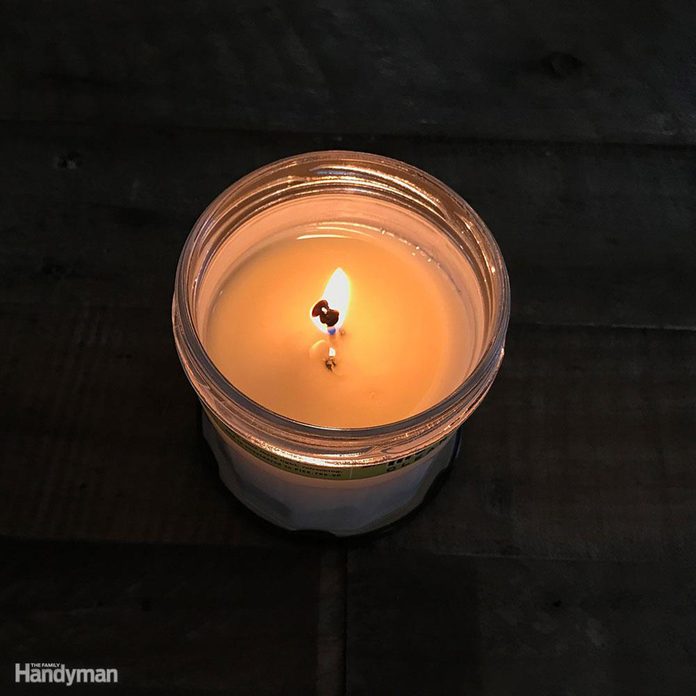
Light Candles
Surprisingly, you shouldn’t resort to 18th century lighting methods when the power is out. “Candles are wonderful, but they tip over, and they can cause a fire,” says Jim Judge, EMT-P, CEM, member of the American Red Cross Scientific Advisory. They also don’t provide strong light, he says, so you’re better off sticking with a bright lantern.
A candle presents an obvious fire hazard but you should also be aware of these 20 hidden things in your home that are a fire hazard.
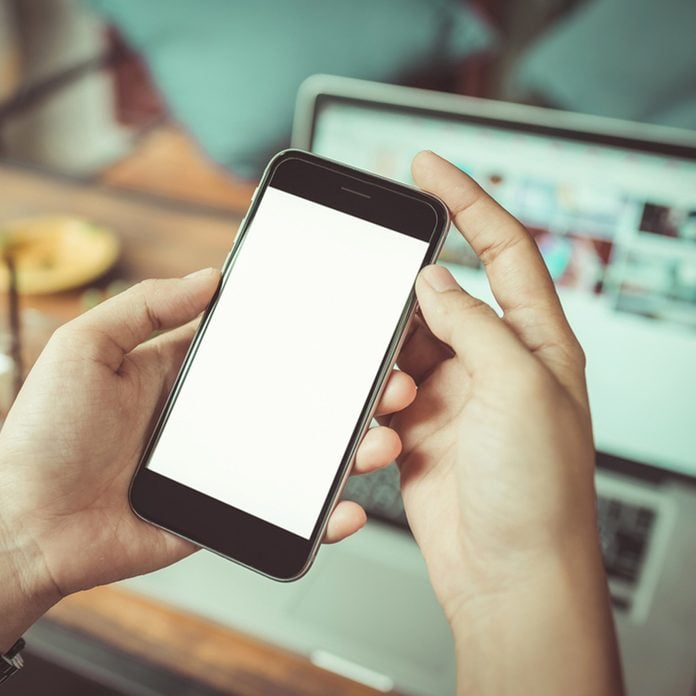
Let Your Phone Die
When you can’t watch TV and have barely enough light to read a book, playing on your phone or iPad for hours might seem like the only appealing option. But you should put it down to preserve the battery, says Ed Lounsbury, a licensed electrician with T. Webber Plumbing, Heating, Air & Electric.
“Save your phone until you need it,” he says. “If the power goes out for a few days you might need it for emergency services.” If you can’t resist opening apps, make sure you juice up a portable phone charger in case your lifeline runs out of battery.
Plus, make sure you know how to extend the life of your phone charger.
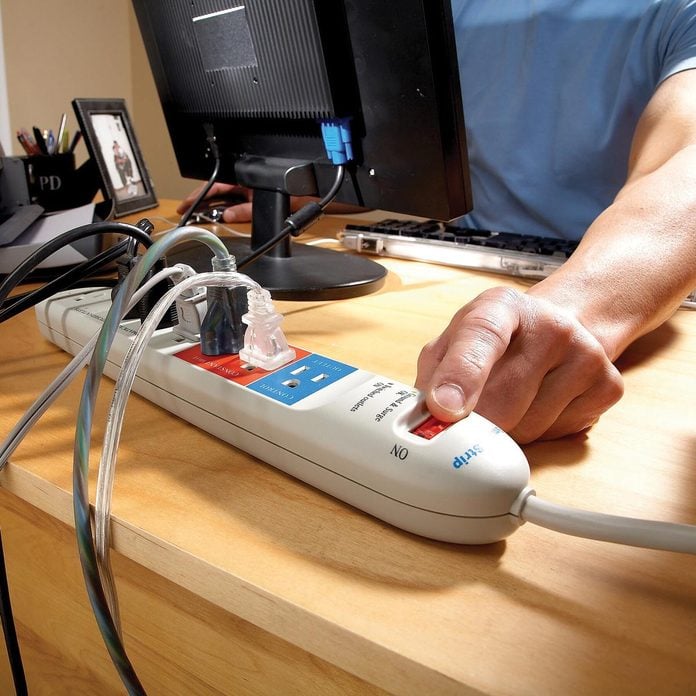
Keep Electronics Plugged In
You should really unplug electronics before the storm hits, because a lightning strike creates a massive surge and could damage your equipment. But if you didn’t see the power outage coming, taking plugs out around the house could still offer protection against the electrical surge of the power coming back.
“It’s always smart to unplug them, but there are ways to prevent them from being damaged,” says Lounsbury. Install a surge protector in an electric panel, or plug sensitive electronics into a surge-protected power strip, he suggests. Get the whole scoop on surge protectors and how to protect your house from a voltage spike.

Unplug Everything
All that said, you should still keep one lamp plugged in during a power outage. “Leave one light on somewhere you’re going to see it when the power goes back on,” says Judge. Check in on a surge protector that can take care of the whole house.
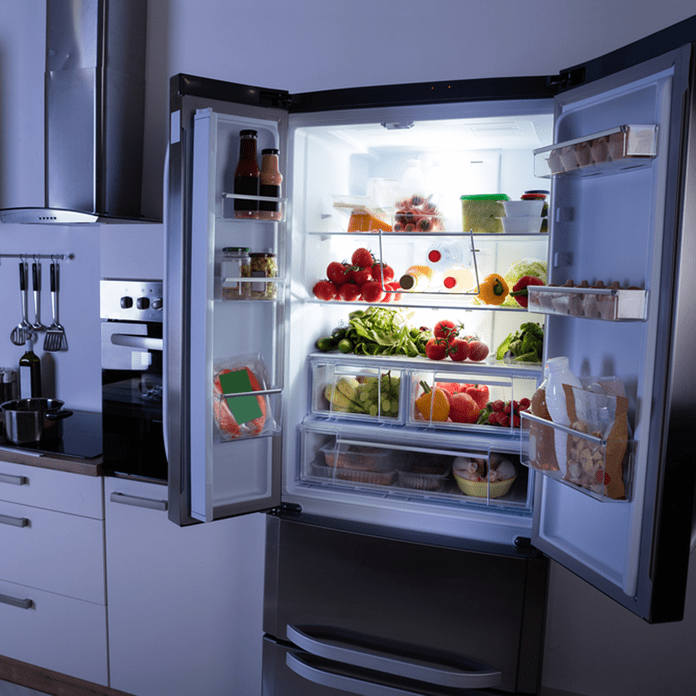
Open the Fridge
Every time you open the fridge or freezer door, you let cold air out — and it won’t be re-cooled until the power comes back on. Unopened, though, your fridge can keep your food at a safe temperature for at least four hours, so try to resist opening it unless absolutely necessary, says Judge.
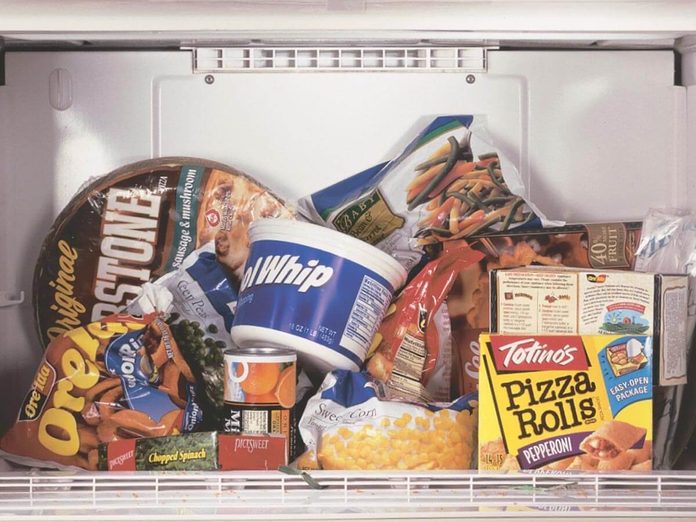
Leave Your Freezer Half-Empty
Food in a full freezer will stay good for at least 48 hours, but that number drops to 24 hours for a half-full freezer, says Judge. Think about it this way: Your ice and frozen food are like ice packs, insulating the entire freezer so the unit doesn’t have to waste energy cooling empty space. Be prepared if there’s a storm in the weather forecast.
“If you don’t have a full freezer, put water bottles in and let it freeze,” suggests Judge. “You can even take gallon-sized freezer bags to fill them up with water and put them in. They will fill in any space.”
You’ll want to keep these 16 things on hand in a home emergency kit to survive a storm.

Ignore Traffic Rules
Drivers can get confused at intersections when stoplights aren’t working, so stay alert and brush up on your traffic rules. “Oftentimes when the power is out, people blow through intersections,” says Judge. Treat it like a four-way stop, letting the cars drive through in the order they arrive.
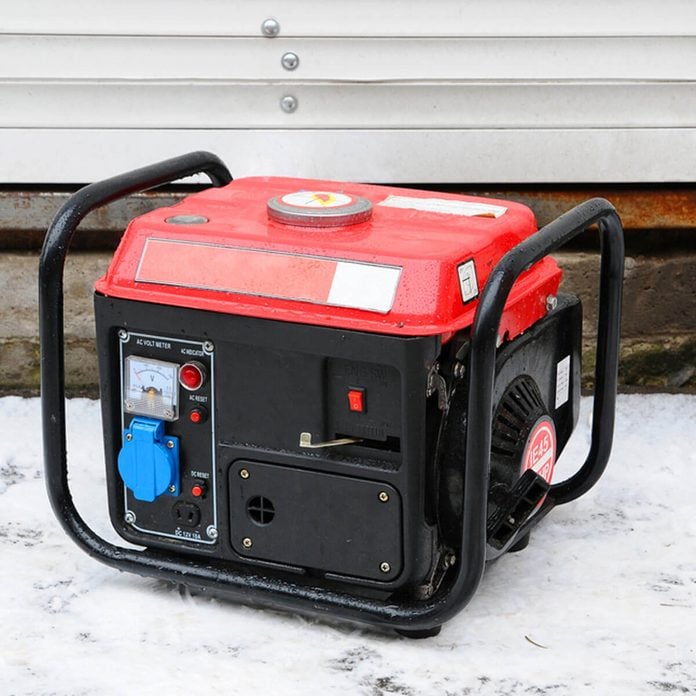
Put a Generator in Your Garage
Hopefully, you already know your generator gives off toxic carbon monoxide, so you should keep it in open air away from the house. But even with the garage door open, a garage is still too enclosed and too close to your home, says Judge. Leave it at least 20 feet from home to avoid the fumes.
“It’s a silent killer,” Judge says. “It’s a colorless, odorless gas, and it doesn’t take long to succumb to carbon monoxide poisoning.”
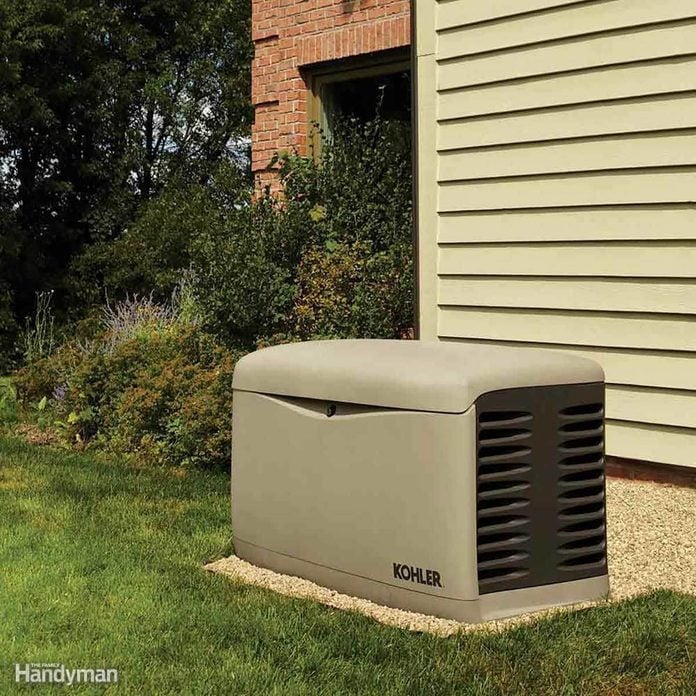
Build a Shelter Too Small for Your Generator
Because you can’t leave your generator in the garage, you’ll need to build a shelter to keep it safe and dry, especially during heavy winds or snow. “The best bet is to build a wooden roof shelter over it so that it’s not in direct contact with the elements,” says Lounsbury. “A lot of people build them too small, and it ends up melting the plastic on the sides.”
See how much gas you’ll need to run a generator through a storm.
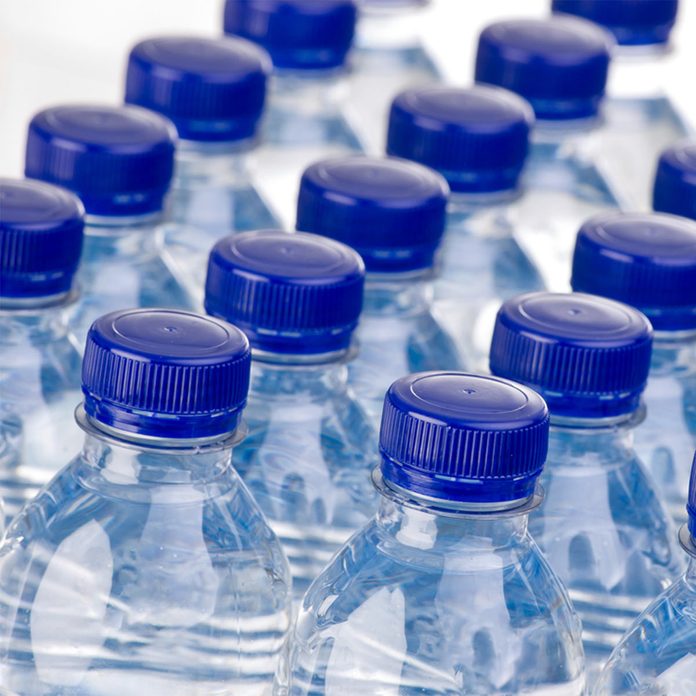
Forget to Load Up on Water
Before a big storm, you probably make sure your pantry is stocked with nonperishable food, but don’t forget about bottled water. If the power outage messes with water systems and causes a boil-water alert, you’ll want to have safe drinking water on hand.
Judge recommends having one gallon of water for each person per day without electricity and having water for pets, too. If you don’t want to shell out for store-bought water, Judge suggests emptying and rinsing old soda bottles or other big jugs to fill them with clean water before the storm hits.
Check out these storm kits to see what else you need to keep on hand.
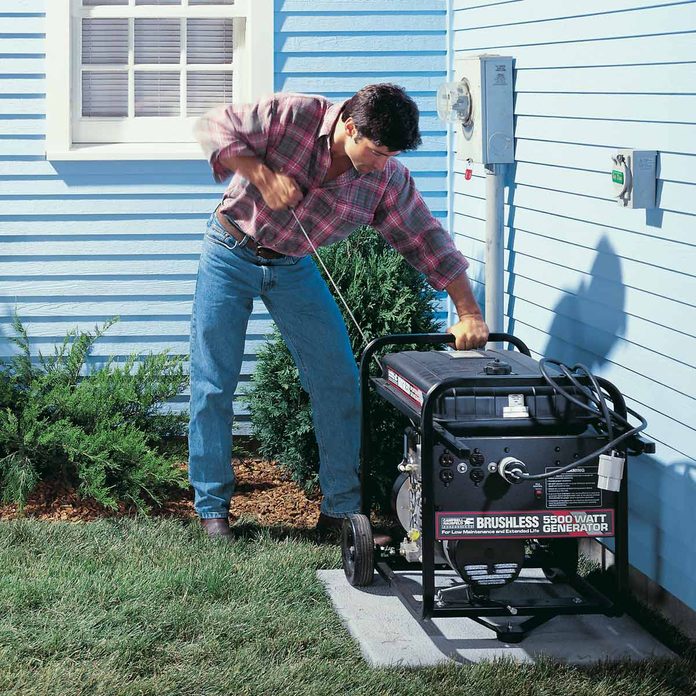
Backfeed Your Generator
You might be tempted to hook up a portable generator to your home’s main panel or dryer outlet so it “backfeeds” power to your whole home. Don’t do it. You won’t be the only one to suffer if something goes wrong.
“It is completely dangerous because if they don’t shut off their main breaker, they’re putting power through the grid,” says Lounsbury. The workers trying to fix the problem won’t be expecting such high voltage and could end up with a fatal shock. For everyone’s sake, play it safe and use your generator as intended. Learn the truth behind 11 deadly myths about electricity.
If need be, find out how you can turn your truck into a generator.
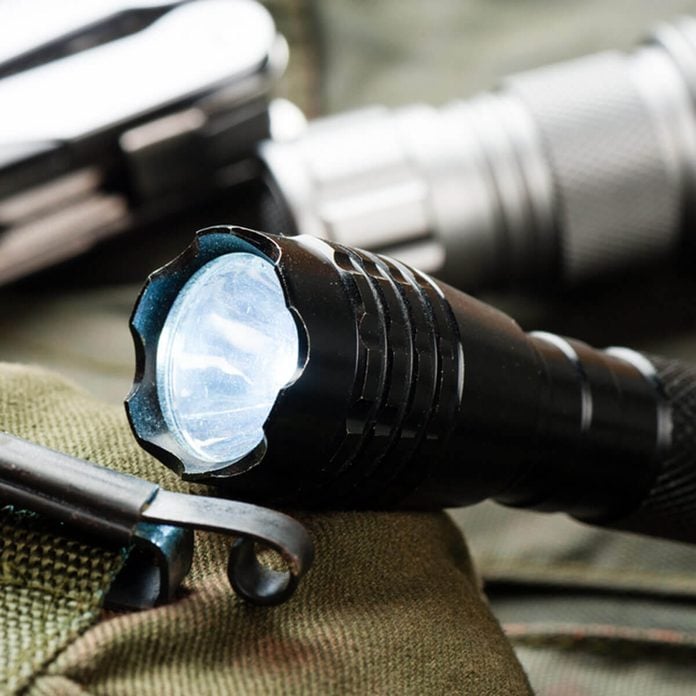
Use a Flashlight You Haven’t Touched in Ages
Don’t be surprised if your battery-powered radio or flashlight won’t work when you need it most. You might think the battery is dead, but it could be a deeper issue, says Judge. “Over time, those batteries will leach acid that will get into the contacts,” he says.
To make sure your devices stay fresh, he recommends having rechargeable LED flashlights on hand for emergencies, but keeping batteries out of your other lights and radios until you need them.
These 21 tips, like keeping a glow-in-the-dark flashlight, can help prepare you for a natural disaster.

Go to the Closest Gas Station
During major power outages, don’t be surprised if your go-to station off the highway runs out of gas. “People are evacuating and using main thoroughfares and using those gas stations,” says Judge. “You could drive a mile up the highway in a side road and fuel is readily available.”